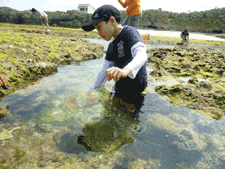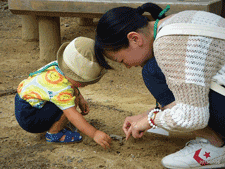
|
 |
Nuclear Disaster and Communities: A Story from Japan
Jeffrey Mensendiek
In September I had the opportunity to visit Fukushima and meet with three mothers with teenage children. Each had voluntarily evacuated from their neighborhoods on account of the nuclear disaster. Though the government had designated certain areas as evacuation zones, these women felt that the levels in their areas were too high for comfort. As parents they felt responsible to protect their children. In one household, the mother and father had differing opinions regarding the dangers of radiation. “Nuclear divorce” is a new term in Japan signifying the divisions that this technological disaster has caused within the family unit. Radiation is not only damaging for the human body, it also destroys communities. Fukushima is a disaster zone where interpersonal relationships have been deeply broken.
I have worked with the churches in northeastern Japan for the past 25 years where Global Ministries has a long history of sharing in God's mission. The church in Japan is very small. Only one percent of the population is Christian. As a minority, they face many challenges on account of their faith. Now, after the nuclear disaster, they are facing a reality that no one else has faced. How will the church witness in such an oppressive situation? How will the church walk with these young mothers who have lost trust in their government? How will we from the US continue to be present through the work of the church in Japan?
I asked the mothers what they would want me to share with our churches in the US. One mother responded, “Please learn what is happening here in Fukushima, and learn to see at a deeper level than what they tell you on the headlines.”

| 
| 




 
Jeffrey Mensendiek serves with the Council on Cooperative Mission, assigned to Kwansei Gakuin University, on faculty of the theology department and a chaplain of the Center for Religious Activities
| 
|







